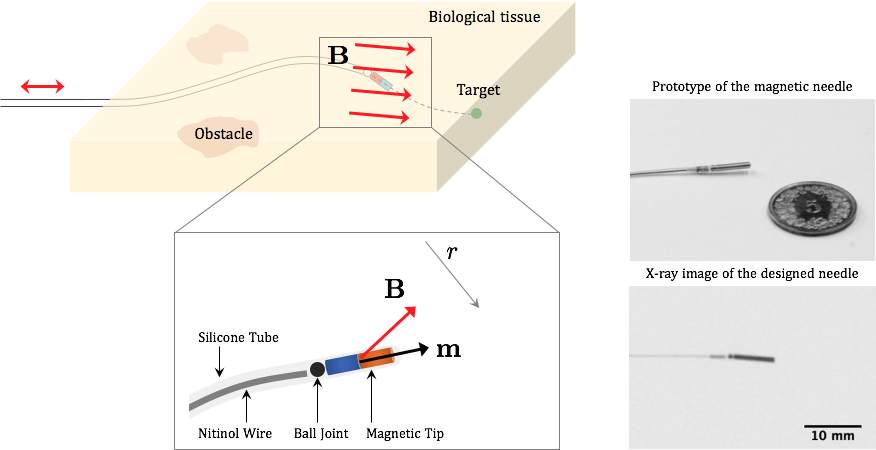Neurosurgery
As one of the most important organs in our body, the brain generates and controls movement and receives, integrates, and interprets sensory information. Any injuries and abnormalities in the brain can potentially cause neurological disorders, currently affecting hundreds of millions of people worldwide.
Deep brain stimulation is a well-established neurosurgical technique used to treat neurological disorders such as Parkinson’s disease and Alzheimer’s disease. A rigid straight needle is currently utilized in the clinic to access deep brain regions, while providing stable insertion. However, this confines the feasible paths to straight trajectories, which cannot be adjusted during needle insertion. In contrast, a flexible needle can achieve curved trajectories using a bending force around an asymmetric tip. The trajectories can then be corrected based on intra-operative imaging. We are investigating the feasibility of navigating a flexible needle with X-ray imaging and magnetic steering while developing a surgical planning approach that will aid surgeons to adapt to the new placement method.
Contacts: Ayoung Hong, Quentin Boehler
